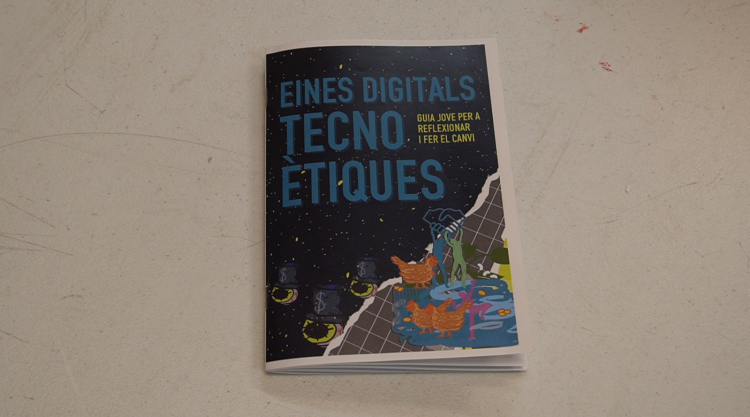The Escola Lliure El Sol and FemProcomuns cooperatives have recently presented the guide 'Technological digital tools. Young guide to reflect and make change'. The resource offers elements for reflection on the use of new technologies, the appropriation of digital tools by large corporations and possible technoethical alternatives. In this sense, the guide seeks to be a resource for working with young people, becoming an awareness tool for educators. So, we talk about the resource with Gemma Ramírez, a member of the Escola Lliure El Sol, and Mònica Garriga, a member of FemProcomuns:
1. First of all, what is the purpose of the guide?
The main goal of the 'Technological Digital Tools' guide is to provide us with arguments to start using technoethic digital tools and to stop using the digital tools of the big technological corporations. Currently, there are many possibilities available to us. Specifically, we understand by technoethical digital tools those tools that use free software, that do not collect your personal data, that do not seek to influence your behavior and that are concerned about the environment and gender bias, among others.
2. Who is the target audience?
We want it to be a friendly, visual, accessible and open guide for everyone, although the resource is particularly aimed at young people. We imagine, for example, an associated public such as leisure monitors, group leaders or members of youth centers, but we also think it is suitable for educational people.
3. How did the project come about?
Initially, we dynamized training and training materials in order to encourage this use of technoethical digital tools among young people and we quickly identified that a previous step was missing, we needed to design attractive, close and encouraging awareness materials to present, know and approach these digital tools
4. So, how can we initiate this paradigm shift?
For us, it is important that we collectively decide to make this bet. There are many people who are putting a lot of love and commitment into developing techno-ethical digital tools that are respectful of people and the environment. Currently, there are alternatives such as, for example, to store and share files, instant messaging, video conferencing, polls and inquiries. We are aware that it is a long road and, from here, we encourage each and every one of you to start it.



